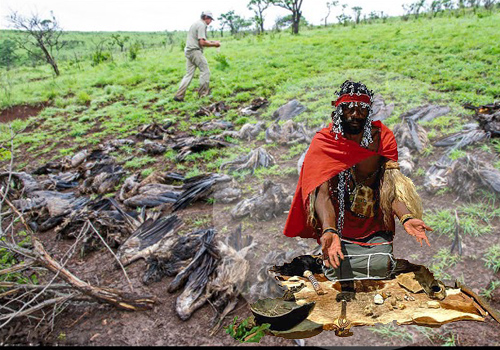 It’s been a generation or more since certain animals considered vermin were proudly exterminated in the U.S., and the concept of bounty on nuisance animals is in welcomed, serious decline.
It’s been a generation or more since certain animals considered vermin were proudly exterminated in the U.S., and the concept of bounty on nuisance animals is in welcomed, serious decline.
Rather, state governments have undertaken more scientific hunting seasons that try to achieve an ecological balance deemed appropriate. So, for example, this year Iowa added more hunting days for deer because the first “harvest” was considered too low.
I think this is rather presumptuous if not outright arrogant. Call a spade a spade.
Controlled harvests of various wild animals through sports hunting would never have been necessary if there weren’t sports hunting in the first place. But it’s certainly better than placing a bounty on deer.
In Africa it’s been a long time since any animal was deemed populous enough to harvest. I also find this an extreme position, by the way, because as I’ve often written, there are too many elephant currently in Africa for a sustainable relationship with the growing human settlements.
Animal protection at its extreme in Africa is part of the legacy of big game tourism. But that may change now that tourism is becoming less and less important in developing African economies.
But between the extremes of eradicating vermin and protecting destructive elephant there lies a very reasonable and indisputable science, that every creature has a place, and that suddenly absent from that place, terrible consequences may ensue.
Nature’s balance is delicate if resilient. Eliminate the elephant and you eliminate baobab trees that they and only the baboon propagate. Squash the dung beetle, the prairie grows acidic and the wildebeest have no grass to eat. Eradicate the hyaena and disease and disfigurement will weaken large herbivore populations.
Consider the vulture in Africa.
That seems pretty easy, doesn’t it? Without a garbage collector, the trash piles up. But there are plenty of scavengers, particularly in Africa. If there weren’t vultures, wouldn’t the hyaena, jackal and other predators just get fatter?
Yes, but there would still be serious consequences. Vultures unlike all their fellow scavengers alone can control serious animal diseases like anthrax and rabies.
Their gastric acid is much more corrosive than their fellow scavengers. Both anthrax and rabies could become epidemics in a very short while following a vulture population collapse.
Vultures have been in decline throughout Africa for a long time. But ironically, it’s not because they’re considered vermin. Rather, it’s because they scavenge on animals poisoned as vermin.
Farmers especially in Kenya have aggressively begun poisoning the wild animals that disrupt their farming, and an increase in small gangs poaching elephant means more poached elephant are poisoned than shot in most of East Africa. The vultures are succumbing to these weapons directed at their food.
No one collects vulture trophies. But as more dead vultures are found on the veld, the “muthi” trade has found new resilience.
Muthi means traditional medicine, practiced mostly in Zululand in South Africa but versions of it exist throughout the developing world.
Vulture heads are an important part of the medicine cabinet of the muthi trade. In one of South Africa’s smaller, very well patrolled national parks, 37 dead vultures were found poisoned, and 29 of the heads removed.
It’s ironic that South Africa leads the international battle against illicit elephant and rhino hunting for amulet and decorative use in Asia, but that its own muthi trade may represent more than a quarter billion dollars annually.
Vultures are no less important to the balance of nature than rhino or elephant. It is the fabric of all the individual threads that’s so beautiful. Cutting any of them is a mistake.